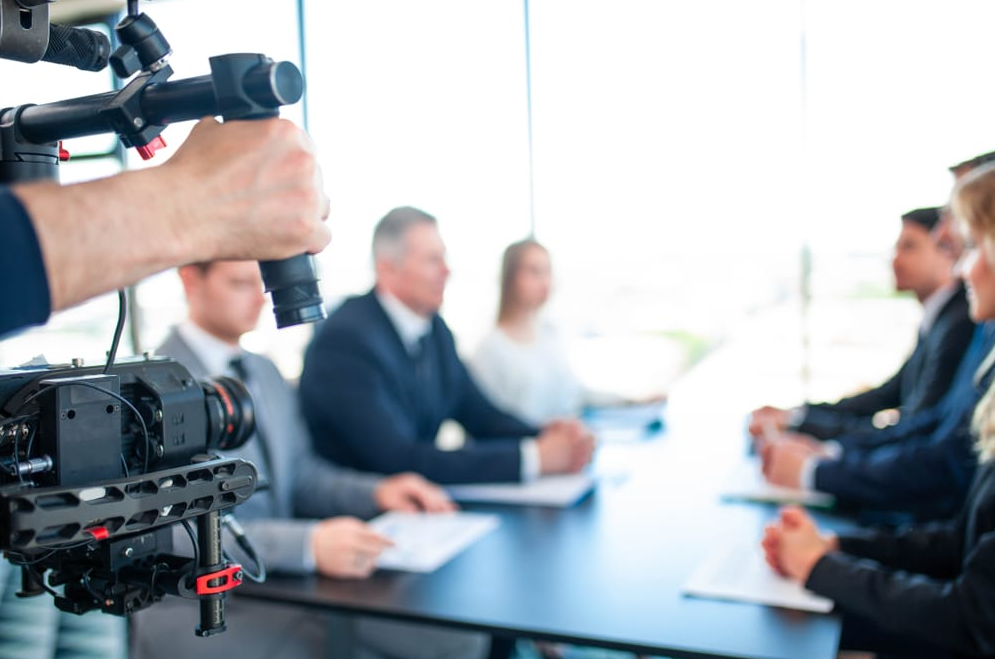Skilled Legal Videography for Trials.
Skilled Legal Videography for Trials.
Blog Article
The Function of Lawful Videography in Depositions and Tests
Lawful videography has emerged as an important device in both depositions and tests, supplying a complex method to recording witness testaments. As lawful specialists increasingly recognize its worth, it prompts a deeper exam of exactly how these aesthetic records can affect juror perceptions and test outcomes.

Importance of Lawful Videography
Legal videography plays a crucial duty in the documentation and discussion of depositions and trials. This customized field combines technical skills with legal expertise to create a reputable document of process that can substantially affect case end results. The visual element of legal videography boosts the understanding of witness testimony, allowing jurors and courts to observe not only the spoken words but also the demeanor, feelings, and body language of the witnesses.
In addition, lawful videography provides an objective account of occasions, minimizing the possibility for misconception that can take place with created records alone. This visual documents offers as an essential device throughout trial discussions, promoting a clearer and more convincing story for both complainants and defendants. The ability to replay video segments throughout court proceedings allows legal groups to highlight crucial points, strengthening their debates effectively.
The significance of legal videography extends beyond the courtroom; it additionally plays a crucial duty in protecting proof for future reference, whether for allures or additional legal action. Its combination right into the legal process is essential for making certain a reasonable and precise depiction of the truths, inevitably adding to the search of justice.

Process of Legal Videography
While catching the nuances of depositions and trials, the procedure of lawful videography includes several vital actions that make sure top quality, exact recordings. A specialist legal videographer prepares by assessing the instance products and recognizing the details requirements of the deposition or trial. This prep work includes familiarizing themselves with the participants and the context, which helps in recording important details.
On the day of the recording, the videographer sets up the necessary equipment, which typically consists of high-definition video cameras, microphones, and appropriate lights. Making sure optimum angles and audio quality is critical, as it directly affects the performance of the recording. The videographer interacts with attorneys and individuals to develop protocols, making certain that every person recognizes the recording procedure.
Throughout the deposition or test, the videographer diligently videotapes the procedures, paying close focus to both verbal and non-verbal hints. This includes recording the behavior and responses of witnesses and attorneys. After the session wraps up, the videographer might edit the video for clearness and compliance with lawful standards, creating a last item that precisely shows the process for future referral and usage in legal contexts.
Benefits in Depositions
The unification of videography in depositions uses many advantages that improve the general procedure of collecting evidence. One key advantage is the ability to capture witness statements with aesthetic and auditory fidelity, offering an extra exact Continue representation of the witness's temperament, tone, and body movement. This multidimensional method enables lawyers and juries to analyze reliability a lot more efficiently than standard written records alone.
In addition, videographed depositions work as a powerful device for protecting testimony. Should a witness come to be unavailable for test, their videotaped deposition can be played in court, making certain that their evidence stays accessible and pertinent. This facet dramatically minimizes the threat of shedding essential information that might affect case results.

Finally, videography boosts the overall professionalism and reliability of the deposition process, instilling self-confidence in customers pertaining to the thoroughness of their lawful depiction (legal videography). By leveraging technology, legal professionals can considerably boost the effectiveness of depositions
Impact on Tests
In many trials, the integration of videography can significantly influence the presentation of evidence and the jury's assumption. Lawful videography catches witness testimonies and essential evidence in a dynamic style, enabling jurors to engage with the product on multiple levels. This visual element improves the narration facet of a trial, offering context and psychological resonance that conventional text-based evidence may do not have.
Furthermore, video recordings can work as powerful devices for impeachment throughout interrogation. When inconsistencies develop in between a witness's prior statements and their courtroom testimony, video evidence gives an unbiased referral that you can check here can persuade jurors' viewpoints. This immediacy and clarity can boost the trustworthiness of an event's story while simultaneously weakening opposing arguments.

Future Trends in Legal Videography
As we look toward the future of lawful videography, a number of arising fads promise to improve its duty within the court room. One considerable pattern is the combination of synthetic knowledge (AI) in video clip analysis and editing. AI can simplify the procedure of determining essential moments in recorded depositions, permitting attorneys to rapidly access pertinent web content, therefore improving efficiency in instance prep work.
Furthermore, the rise of virtual fact (VR) and enhanced reality (AR) innovations is expected to change just how jurors experience evidence. legal videography. By immersing jurors in a substitute setting, these modern technologies can offer a much more profound understanding of intricate situations, leading to more educated considerations
Furthermore, the boosting need for remote depositions, sped up by the COVID-19 pandemic, will likely proceed. Lawful videographers will require to adapt to new software and systems to guarantee high-grade recordings in online settings.
Last but not least, the growing emphasis on data protection will certainly necessitate stricter methods for storing and sharing video clip proof. As the lawful landscape develops, legal videographers have to stay abreast of these patterns to maintain their importance and effectiveness in the judicial process.
Verdict
In recap, lawful videography serves an essential feature in the judicial procedure, improving web link the integrity of depositions and trials. As technology proceeds to evolve, lawful videography is positioned to additional change its duty within the lawful landscape.
Report this page